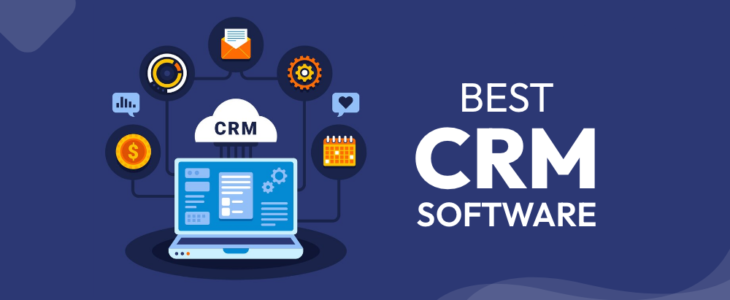
Customer Relationship Management (CRM) systems have become essential tools for businesses aiming to enhance customer interactions and streamline their processes. As we enter 2024, the CRM landscape continues to evolve, offering a variety of solutions tailored to different business needs. Here’s a look at some of the top CRM options this year, each with unique features suited to various business requirements:
1. Salesforce
Overview: Salesforce remains a dominant force in the CRM market, known for its extensive customization options and robust feature set. It offers comprehensive solutions for sales, customer service, marketing, and analytics.
Key Features:
- Sales Cloud: Advanced sales management tools with AI-driven insights.
- Service Cloud: Exceptional customer service features including chatbots and case management.
- Marketing Cloud: Powerful tools for email marketing, social media, and customer journey mapping.
Best For: Large enterprises and businesses needing extensive customization and integration capabilities.
2. HubSpot CRM
Overview: HubSpot CRM is celebrated for its user-friendly interface and integration with other HubSpot tools. It offers a free tier with essential features, making it a popular choice for small to mid-sized businesses.
Key Features:
- Contact Management: Easy-to-use tools for tracking interactions and managing contacts.
- Marketing Automation: Seamless integration with HubSpot’s marketing tools.
- Sales Pipeline: Visual pipeline management and deal tracking.
Best For: Small to mid-sized businesses seeking an affordable and intuitive CRM solution.
3. Microsoft Dynamics 365
Overview: Microsoft Dynamics 365 offers a comprehensive suite of business applications, integrating CRM with Enterprise Resource Planning (ERP). It is designed to unify various business processes and enhance productivity.
Key Features:
- Sales and Customer Service: Integrated tools for sales management and customer support.
- AI and Analytics: Advanced analytics and AI-driven insights.
- Integration: Seamless integration with Microsoft Office and other business applications.
Best For: Organizations looking for a unified platform that integrates CRM with ERP and other business tools.
4. Zoho CRM
Overview: Zoho CRM is known for its affordability and wide range of features, making it a versatile choice for businesses of various sizes. It offers customization and automation tools at competitive pricing.
Key Features:
- Sales Automation: Tools for managing sales processes and workflows.
- Customization: Extensive customization options and integration capabilities.
- AI and Analytics: Zia AI provides insights and predictions to aid decision-making.
Best For: Businesses seeking a cost-effective CRM with robust features and customization options.
5. Pipedrive
Overview: Pipedrive is designed with a focus on sales pipeline management. Its intuitive interface and straightforward tools make it easy for sales teams to manage leads and deals effectively.
Key Features:CRMCredi
- Pipeline Management: Visual sales pipelines and deal tracking.
- Automation: Automate repetitive tasks and workflows.
- Integration: Integrates with various third-party applications and tools.
Best For: Sales teams that need a user-friendly CRM focused on pipeline management and deal tracking.
6. Freshsales
Overview: Freshsales, part of the Freshworks suite, offers a streamlined CRM solution with a focus on usability and automation. It provides a balance of features for both sales and customer support.
Key Features:
- Lead Scoring: Prioritize leads based on engagement and other factors.
- Automation: Workflow automation and email sequences.
- Analytics: In-depth reporting and analytics tools.
Best For: Businesses that need a well-rounded CRM with strong automation and analytics capabilities.
Choosing the Best CRM
Selecting the right CRM depends on various factors including the size of your business, specific needs, budget, and desired features. Consider the following when making your decision:
- Feature Requirements: Identify the essential features you need, such as sales automation, customer support, or marketing integration.
- Ease of Use: Evaluate the user interface and overall ease of use.
- Integration: Ensure the CRM integrates well with your existing tools and systems.
- Cost: Consider both the upfront cost and the long-term value.
In 2024, the best CRM for your business will be one that aligns with your specific needs, supports your growth, and enhances your customer interactions. Each of the CRMs highlighted here offers unique strengths, so assess your business requirements to find the perfect fit.
